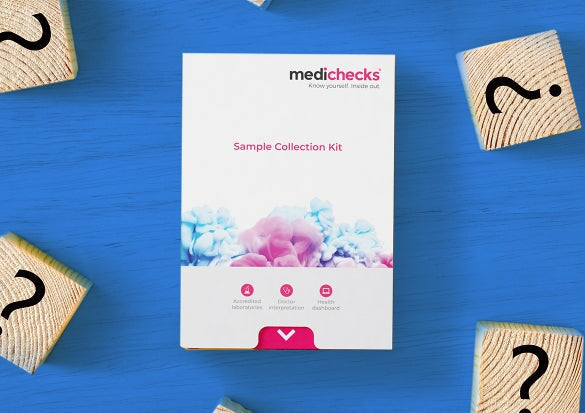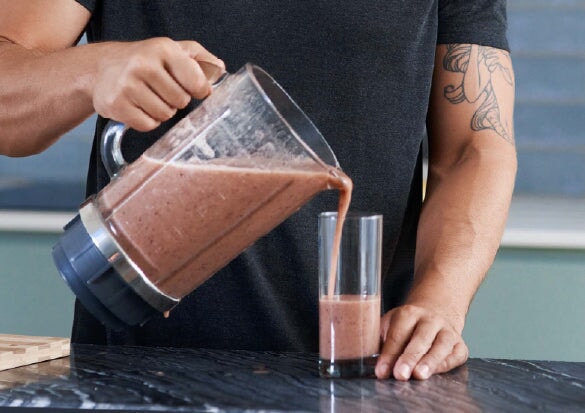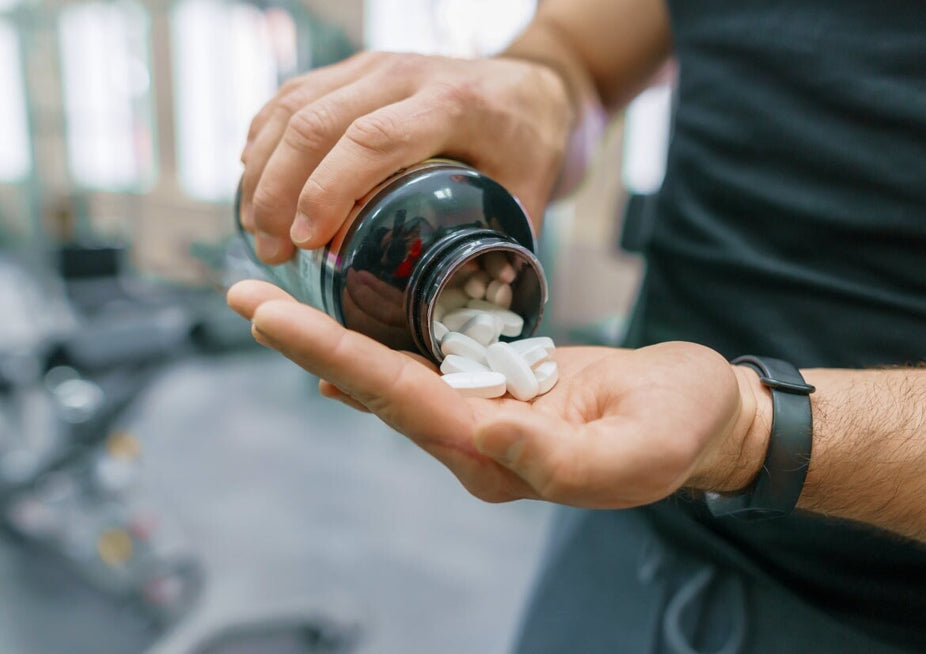The importance of Sports Performance blood testing
What can you learn from a Sports Performance blood test? Find out how checking your inner health can help you perform at your best.
Whether you’re refining your fitness programme or starting a new training plan, you will likely use a series of baseline measurements to track your progress. But what if there’s more?
Those basic fitness baseline measurements will likely include:
• Personal bests
• Measurements
• Physical appearance
And although these physical measurements can be a good indicator of your general health, knowing what’s going on inside your body can help you to improve personal bests and reach optimal performance.
Using blood tests and health checks can help you track a variety of biomarkers, from checking your cholesterol levels to seeing if you are overtraining.
In this blog, we discuss the five key areas that are important to monitor in sports performance. And how using blood tests and health checks to monitor them can help you reach your goals.
The five key areas to monitor in sports performance are:
1. Hormones
2. Thyroid function
3. Inflammation
4. Iron status
5. Vitamins and minerals
What can a blood test tell you about your sports performance?
Blood tests and health checks use biomarkers (biological indicators that can reveal information about your health) to help with necessary adaptations to training, recovery, and nutrition.
Measuring your biomarkers can help you establish your health baseline, monitor your performance, and track your recovery. But what are the important key areas used to monitor sports performance?
Five key biomarkers to monitor in sports performance
1. Hormones
Hormones, especially testosterone (and its precursor DHEA), are important for ensuring you can reach your body’s full potential.
For example, if you have low levels of testosterone, it can affect how your body [1]:
• Builds muscle
• Burns fat
• Balances mood
Endurance athletes are commonly low in testosterone [2], but incorporating more strength work into your exercise programme can help to raise levels.
Exercise and stress
Exercise is perceived by the body as a form of stress and stimulates the release of cortisol - another hormone that needs to be considered in your performance.
Long-term, high levels of cortisol can also lead to the breakdown of muscle and can interfere with muscle development.
Other key hormones that can affect your performance include [3]:
• Growth hormone
• Insulin
• Oestrogen
Having a greater understanding of which hormone levels can impact your performance can be beneficial when training. You can read more about whether your hormones are affecting your performance in the importance of blood testing for bodybuilders blog.
You can also test your levels through our Ultimate Performance Blood Test, or other blood tests in our sports performance range.
2. Thyroid function
Your thyroid is the gland that governs your metabolism (the process whereby your body converts what you eat and drink into energy). If you have a thyroid condition, it could be causing symptoms related to your weight and energy levels.
Thyroid conditions can affect the body’s ability to regulate [4]:
• Mood
• Energy levels
• Temperature
• Heart rate
All of these symptoms can make it harder to exercise. However, exercise has proven to alleviate some of the common symptoms of both an underactive and overactive thyroid, including [4]:
• Low energy
• Anxiety
• Trouble sleeping
• Weight gain
• Depression
Knowing how and where to start when exercising with a thyroid condition can be overwhelming, but regular testing can help keep an eye on your thyroid-stimulating hormone (TSH) levels.
Testing your TSH levels with our Thyroid Function Blood Test or Advanced Thyroid Function Blood Test can help put your mind at ease that exercise isn’t impacting your health further.
We have also put together some dos and don’ts for exercising with a thyroid condition to help you get (or keep) moving safely.
3. Inflammation
Inflammation in the body is measured by a protein called C-reactive protein (CRP). If you take part in moderate to intense exercise, this can cause inflammation and raise CRP levels [5]. If you don’t let your body recover properly, your CRP levels can remain elevated.
The good news is that exercise with proper recovery can help to decrease CRP and CK (creatine kinase) in the blood – two biomarkers that can indicate correct muscle recovery.
Keeping an eye on inflammation can help you to ensure you are not overtraining. CRP biomarkers are included in our Ultimate Performance Blood Test and some other tests within our sports performance range.
You can find more information on the different types of blood tests in our sports performance buying guide.
4. Iron status
Iron is a mineral vital for transporting oxygen from the blood to the tissues. Using oxygen efficiently is very important in athletic training and muscle building.
Unsurprisingly, low levels of iron can affect sporting performance – not only can it make you feel tired, but your body will struggle to get the vital oxygen it needs, causing you to feel breathless and dizzy.
On the other hand, too much iron in the blood can:
• Increase inflammation
• Raise cholesterol
• Impact cardiovascular health
So, as an athlete, it is important to monitor iron levels. You can do this with our simple finger-prick Iron Blood Test, which can help identify iron deficiency anaemia or iron overload.
5. Vitamins and minerals
Nutrition is a cornerstone of athletic performance. It is just as important as training plans and broader recovery strategies.
Several vitamins and minerals are important to monitor when training, including magnesium, vitamin D, and B12.
Magnesium is an important mineral for the function of:
• Proper muscle
• Nerves
• Enzyme function
Vitamin B12 is important to:
• Produce red blood cells
• Regulate metabolism
• The functioning of the nervous system
Vitamin D is important for athletes as it relates to:
• Overall health
• Bone density
• Innate immunity
• Muscle wasting
Throughout winter especially, many of us in the UK are vitamin D deficient. That’s why the UK government recommends every adult takes a vitamin D supplement from October to early March.
Symptoms of vitamin D deficiency include:
• Muscle weakness
• Mood swings
• Fatigue
You can read more about vitamin D deficiency in our guide.
The Ultimate blood test
Monitoring and tracking your levels of these vitamins and minerals can support you to optimise your sports performance.
Our Ultimate Performance Blood Test is the ultimate blood test for men and women who are transforming their bodies through diet and exercise and want to track their progress.
How to get the most out of blood testing for sports performance
Follow our three top tips to help you get the most out of blood testing when you are monitoring your training.
1. Share information with your healthcare provider
When you purchase a blood test with Medichecks, you will be given access to an online portal. Within this, there is a section to add information, such as diet and medical history. The more you tell your doctor (whether private or not), the more they can give you specific and accurate advice.
2. Test more than one biomarker
Experts agree that relying on a single biomarker is simplistic and not always a reliable way to inform your training [6]. Combining your biomarkers through a comprehensive test is the most valuable way to uncover the full picture of what is going on inside your body.
All our sports performance tests include several biomarkers to help you understand how your health may be impacting your performance. Our sports performance buying guide can help you to figure out which test is best for you.
3. Test several times over a period to monitor progress
Changes to your body over time depend on the exercise demands you place on it. Your exercise and training can have many different phases and using biomarker testing at multiple points can track and guide your training and competition. In general, the more you test, the better. Seeing improvements in your biomarkers over time can boost your motivation and help you spot any changes before they impact your training e.g. vitamin deficiencies.
Using the latest scientific evidence provided by experts in the field [6], we have put together a biomarker testing plan to help guide you as to when and how you should be testing your biomarkers.
What are the best times to blood test for sports performance?
• Off-season: Testing during rested, healthy periods can provide your baseline. This can help you to establish your average.
• Pre-season training: Testing at the beginning and end of your training season can tell you how well prepared you are for the competitive season. It can also provide you with confidence that you are not overtraining.
• Competitive season: Testing should be completed around a bout of intense exercises such as a training test, a challenging week, or a shift in training. This can uncover any defects in your body's ability to respond optimally, such as a nutritional deficiency.
• Peak competitive season: It is recommended to test before (and multiple times after) a major competition event or injury. This can allow you to determine whether recovery has occurred on a biochemical level before you restart [6].
The importance of blood testing in sports performance
We’ve explained five key markers to monitor in sports performance, how to make the most of blood testing, and when the best times to test are. However, there are a few extra reasons why blood testing is important.
To summarise; blood testing is important in sports performance because it:
• Identifies your health baseline – a marker of where you are now so that you can see how your performance levels are impacting your health and vice versa.
• Can show you whether you are overtraining or deficient in vital vitamins and minerals.
• Investigates any symptoms such as fatigue, helping to determine any underlying causes.
• Determines whether any supplements you are taking are helping or hindering your training.
• Optimises your performance when used correctly and with support from coaches and doctors.
References
1. Huo, S., Scialli, A., McGarvey, S., Hill, E., Tügertimur, B., Hogenmiller, A., Hirsch, A. and Fugh-Berman, A., 2016. Treatment of Men for “Low Testosterone”: A Systematic Review. PLOS ONE, 11(9), p.e0162480.
2. Hackney, A., 2008. Effects of endurance exercise on the reproductive system of men: The “exercise-hypogonadal male condition”. Journal of Endocrinological Investigation, 31(10), pp.932-938.
3. BJSM blog - social media's leading SEM voice. 2022. Sports Endocrinology - what does it have to do with performance? - BJSM blog - social media's leading SEM voice. [online] Available at: <https://blogs.bmj.com/bjsm/2017/04/28/sports-endocrinology-performance/> [Accessed 28 March 2022].
4. nhs.uk. 2022. Underactive thyroid (hypothyroidism). [online] Available at: <https://www.nhs.uk/conditions/underactive-thyroid-hypothyroidism/> [Accessed 28 March 2022].
5. Cerqueira, É., Marinho, D., Neiva, H. and Lourenço, O., 2020. Inflammatory Effects of High and Moderate Intensity Exercise—A Systematic Review. Frontiers in Physiology, 10.
6. Lee, E., Fragala, M., Kavouras, S., Queen, R., Pryor, J. and Casa, D., 2017. Biomarkers in Sports and Exercise: Tracking Health, Performance, and Recovery in Athletes. Journal of Strength and Conditioning Research, 31(10), pp.2920-2937.
Related tests
Are you looking to transform your body through diet and exercise and track your progress along the way?
Our Ultimate Blood Test is designed for those who want to take their health and fitness to the next level — whether you're an athlete, biohacker, or simply someone who's serious about...
- Results estimated in 3 working days
- 56 biomarkers
Venous collection
Select testFeeling fatigued, experiencing muscle cramps, or struggling with low energy? Magnesium is essential for muscle function, nerve signalling, and heart health, but low levels can often go unnoticed
- Results estimated in 3 working days
- 1 biomarkers
Finger-prick or Venous collection
Select testAre you experiencing symptoms of low vitamin B12, such as extreme tiredness, low energy, muscle weakness, or poor memory?
If your diet lacks B12-rich foods like meat, fish, or dairy, or you have a health condition that affects absorption—such as Crohn’s or coeliac disease, or pernicious...
- Results estimated in 2 working days
- 1 biomarkers
Finger-prick or Venous collection
Select testFeeling constantly tired or struggling with low energy? Your iron levels could be the reason
- Results estimated in 3 working days
- 5 biomarkers
Finger-prick or Venous collection
Select testMonitor your thyroid health and detect any imbalances with our Thyroid Function Blood Test
- Results estimated in 2 working days
- 3 biomarkers
Finger-prick or Venous collection
Select test








